Why is Canada's assassination allegation against India more destabilizing than it seems?
Sikh activist Hardeep Singh Nijjar's death has sent shockwaves across the world

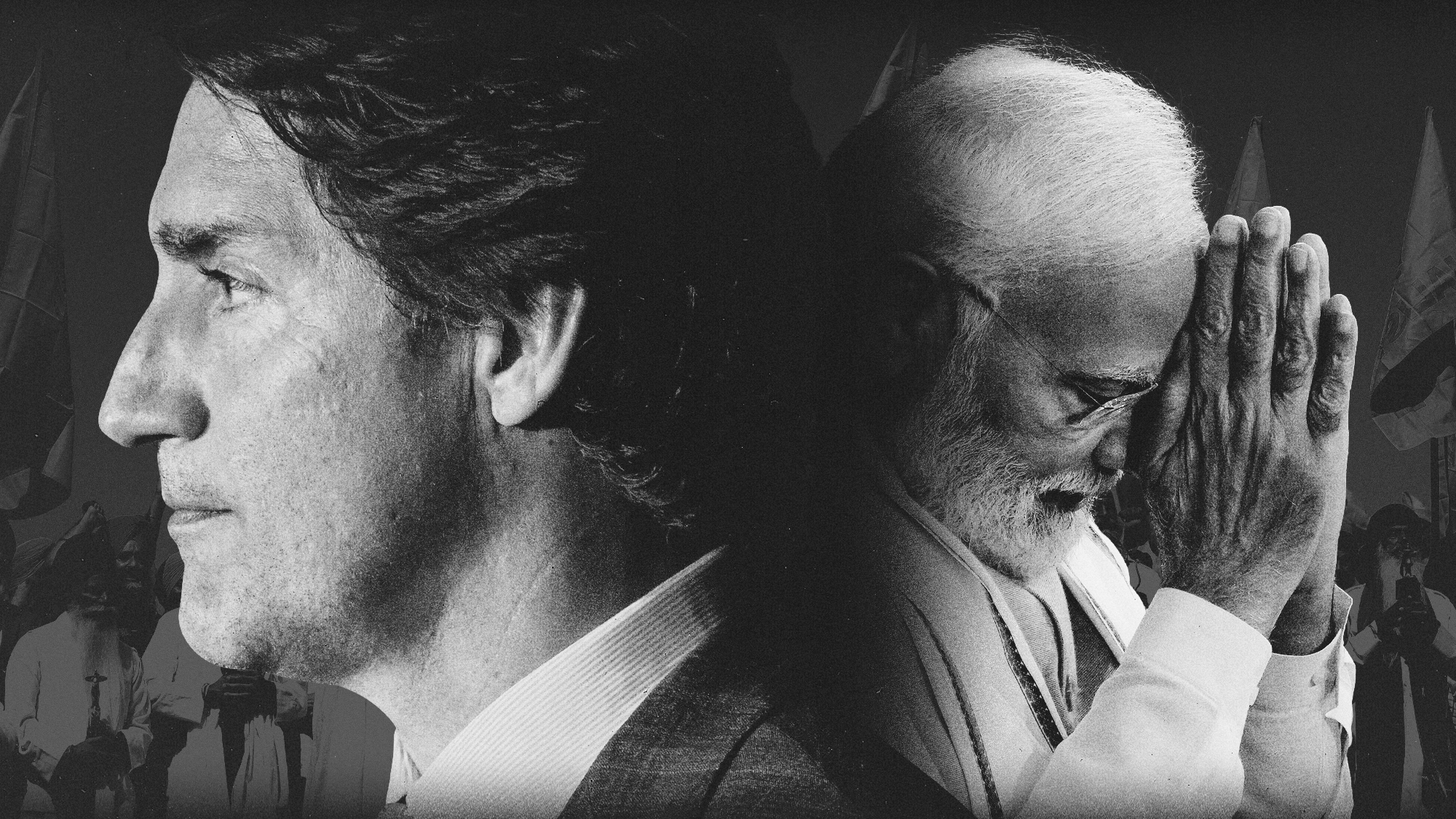
A free daily email with the biggest news stories of the day – and the best features from TheWeek.com
You are now subscribed
Your newsletter sign-up was successful
It's been less than a week since Canadian Prime Minister Justin Trudeau publicly announced "credible allegations of a potential link" between the Indian government and the death of Hardeep Singh Nijjar, a Sikh community leader in British Columbia. Nijjar, a Canadian citizen and activist for Sikh national independence, was allegedly shot to death by two masked men in what police have called a "targeted" killing — one that would represent an "unacceptable violation of our sovereignty" should India be involved, Trudeau told the Canadian parliament. Unsurprisingly, the Indian government has vehemently denied any connection to the death of a man it had labeled a "terrorist" for his separatist advocacy, calling the allegations "absurd and motivated."
In the days since Trudeau's public allegations, the intensifying hostility between both countries has spilled over from a war of words to a serious geopolitical row, with India suspending its visa services for Canadians, and Canada reducing its diplomatic staff in India, citing the "current environment where tensions have heightened." Both countries have "historic close ties," BBC noted, with nearly four percent of the total Canadian population having Indian origins. But the shockwaves from Nijjar's murder — and the now-public accusation that his death was a political assassination ordered by elements of a foreign government — have extended beyond these two nations themselves, entangling a host of aligned countries in a fragile geopolitical balancing act.
What the commentators said
Trudeau's allegations are "the kind of news that usually sparks uproar among democratic allies," Al Jazeera reported. "Not this time." Instead, member-states of the "Five Eyes” intelligence-sharing alliance of which Canada is a part have been conspicuously quiet, opting not to echo the allegations "because of China."
The Week
Escape your echo chamber. Get the facts behind the news, plus analysis from multiple perspectives.

Sign up for The Week's Free Newsletters
From our morning news briefing to a weekly Good News Newsletter, get the best of The Week delivered directly to your inbox.
From our morning news briefing to a weekly Good News Newsletter, get the best of The Week delivered directly to your inbox.
India is "important in Western calculations" as a necessary regional counterbalance to China while "Canada is not," Carleton University international relations professor Stephanie Carvin told the outlet. That calculation puts Canada "offside among all other Western countries."
Allies within the Five Eyes network are "understandably reluctant to really wade into this" agreed historian Wesley Wark, a senior fellow with the Center for International Governance Innovation and former Canadian national security official. "It's a bit of a waiting game," he told Reuters, predicting that more countries will chime in "if the Canadians come up with very solid evidence" of India's involvement in the murder. But, without ally support, "Canada's not going to be able to do a great deal to move India," former Canadian Security Intelligence Service head Richard Fadden cautioned.
Should India be conclusively linked to Nijjar's death, it would represent the "growing brazenness of India’s intelligence services," Chatham House Senior Fellow for South Asia Dr. Chietigj Bajpaee wrote in The Guardian, who noted that while the Indian government has pursued similar operations in its immediate neighboring countries, doing so in a Western ally nation would be "a gamechanger." Wanting to be seen as a "responsible global power," the episode would risk putting India "in the same league as Saudi Arabia following the killing of journalist Jamal Khashoggi, or Russia following the Salisbury poisonings."
President Biden in particular has "already done [Indian Prime Minister Narendra] Modi a big favor" by allegedly scuttling Trudeau's effort to release a joint statement condemning India during the recent G20 summit in New Delhi, Bloomberg columnist Bobby Ghosh told PBS News Hour. Trying to balance a blossoming relationship with India, while maintaining America's close relationship with Canada has placed the president in a "really, really, really awkward position."
A free daily email with the biggest news stories of the day – and the best features from TheWeek.com
What's next?
If Trudeau is able to share compelling evidence linking India to Nijjar's death, "it is time for a tougher line" with India, according to The Economist. Still, the relationship between India and Canada is probably not irrevocably damaged, as "long-term strategic interests will likely force an improvement in time," The Washington Post's David Moscrop said, cautioning that "as the Nijjar murder investigation proceeds, Indo-Canadian relations might further deteriorate."
"Trade will likely be the first major casualty of the fallout" of the fracture between India and Canada, according to The Wilson Center think tank for global affairs, while damage to the immigration pipeline between the two countries "could be even more devastating."
In the meantime, Fadden stressed that the most immediate hope is simply "to get India not to do this again."
Rafi Schwartz has worked as a politics writer at The Week since 2022, where he covers elections, Congress and the White House. He was previously a contributing writer with Mic focusing largely on politics, a senior writer with Splinter News, a staff writer for Fusion's news lab, and the managing editor of Heeb Magazine, a Jewish life and culture publication. Rafi's work has appeared in Rolling Stone, GOOD and The Forward, among others.
-
 The environmental cost of GLP-1s
The environmental cost of GLP-1sThe explainer Producing the drugs is a dirty process
-
 Greenland’s capital becomes ground zero for the country’s diplomatic straits
Greenland’s capital becomes ground zero for the country’s diplomatic straitsIN THE SPOTLIGHT A flurry of new consular activity in Nuuk shows how important Greenland has become to Europeans’ anxiety about American imperialism
-
 ‘This is something that happens all too often’
‘This is something that happens all too often’Instant Opinion Opinion, comment and editorials of the day
-
 House votes to end Trump’s Canada tariffs
House votes to end Trump’s Canada tariffsSpeed Read Six Republicans joined with Democrats to repeal the president’s tariffs
-
 ‘My donation felt like a rejection of the day’s politics’
‘My donation felt like a rejection of the day’s politics’Instant Opinion Opinion, comment and editorials of the day
-
 ‘It’s good for the animals, their humans — and the veterinarians themselves’
‘It’s good for the animals, their humans — and the veterinarians themselves’Instant Opinion Opinion, comment and editorials of the day
-
 ‘It’s another clarifying moment in our age of moral collapse’
‘It’s another clarifying moment in our age of moral collapse’Instant Opinion Opinion, comment and editorials of the day
-
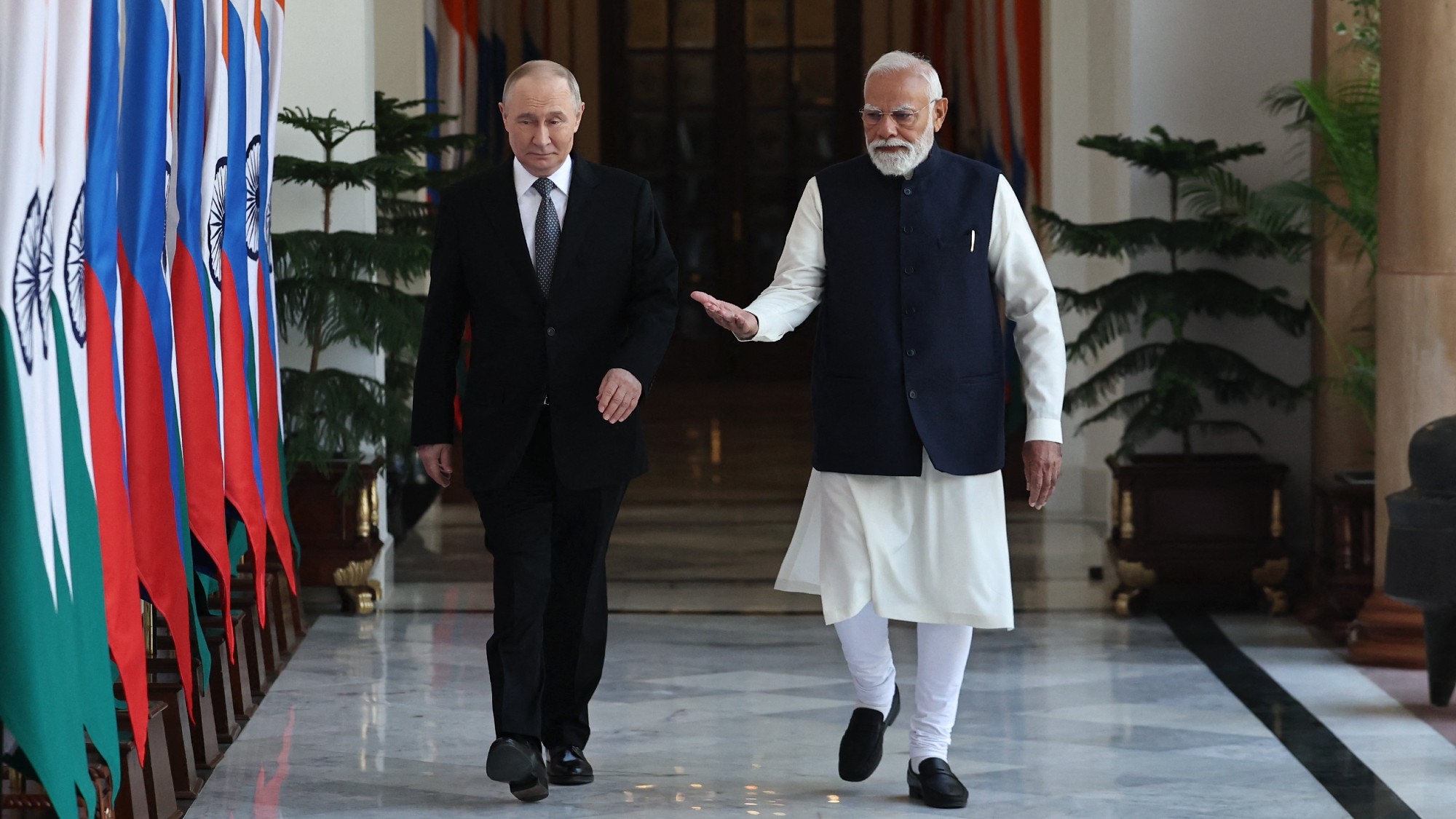 Is a Putin-Modi love-in a worry for the West?
Is a Putin-Modi love-in a worry for the West?Today’s Big Question The Indian leader is walking a ‘tightrope’ between Russia and the United States
-
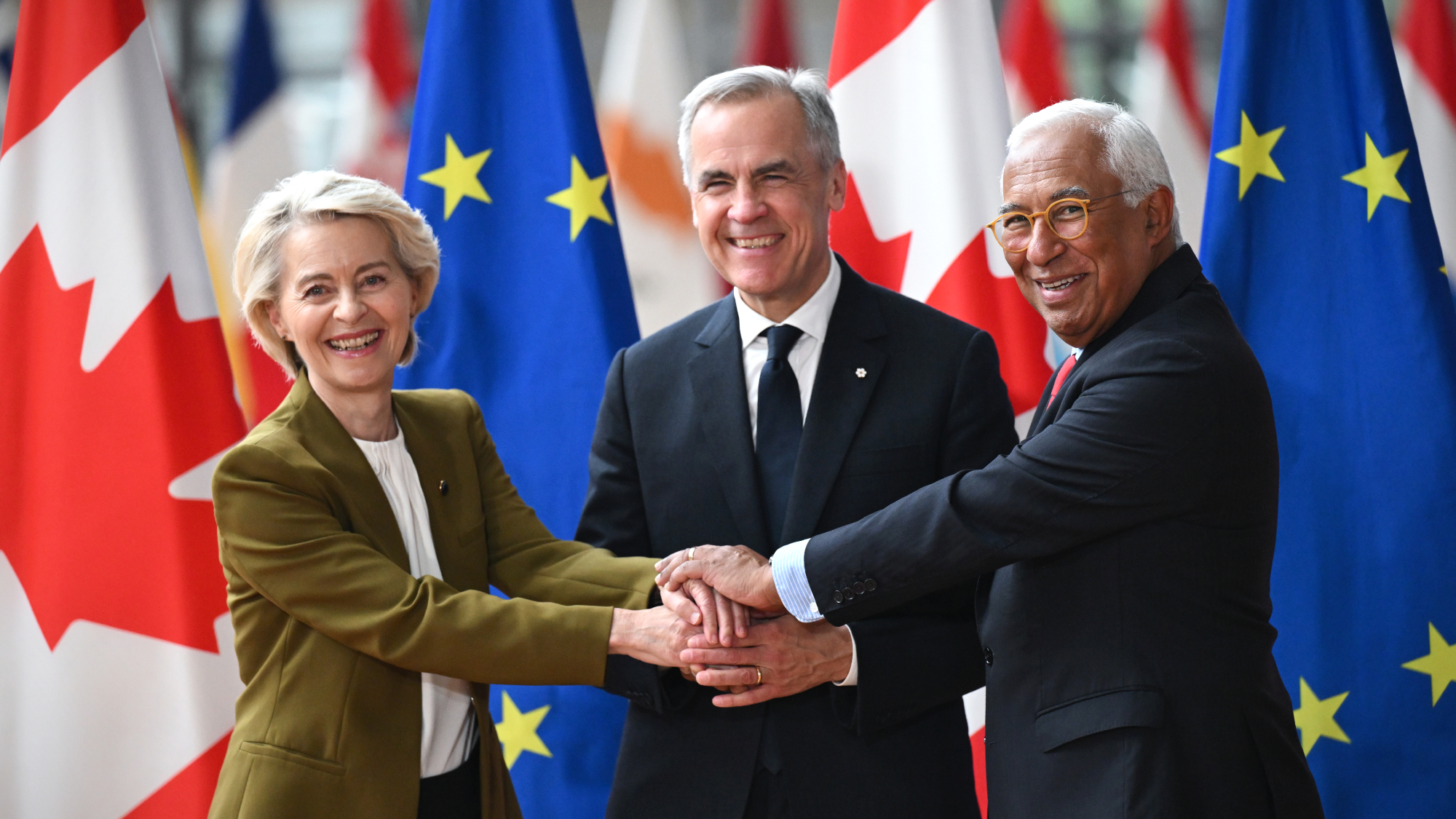 Canada joins EU’s $170B SAFE defense fund
Canada joins EU’s $170B SAFE defense fundspeed read This makes it the first non-European Union country in the Security Action for Europe (SAFE) initiative
-
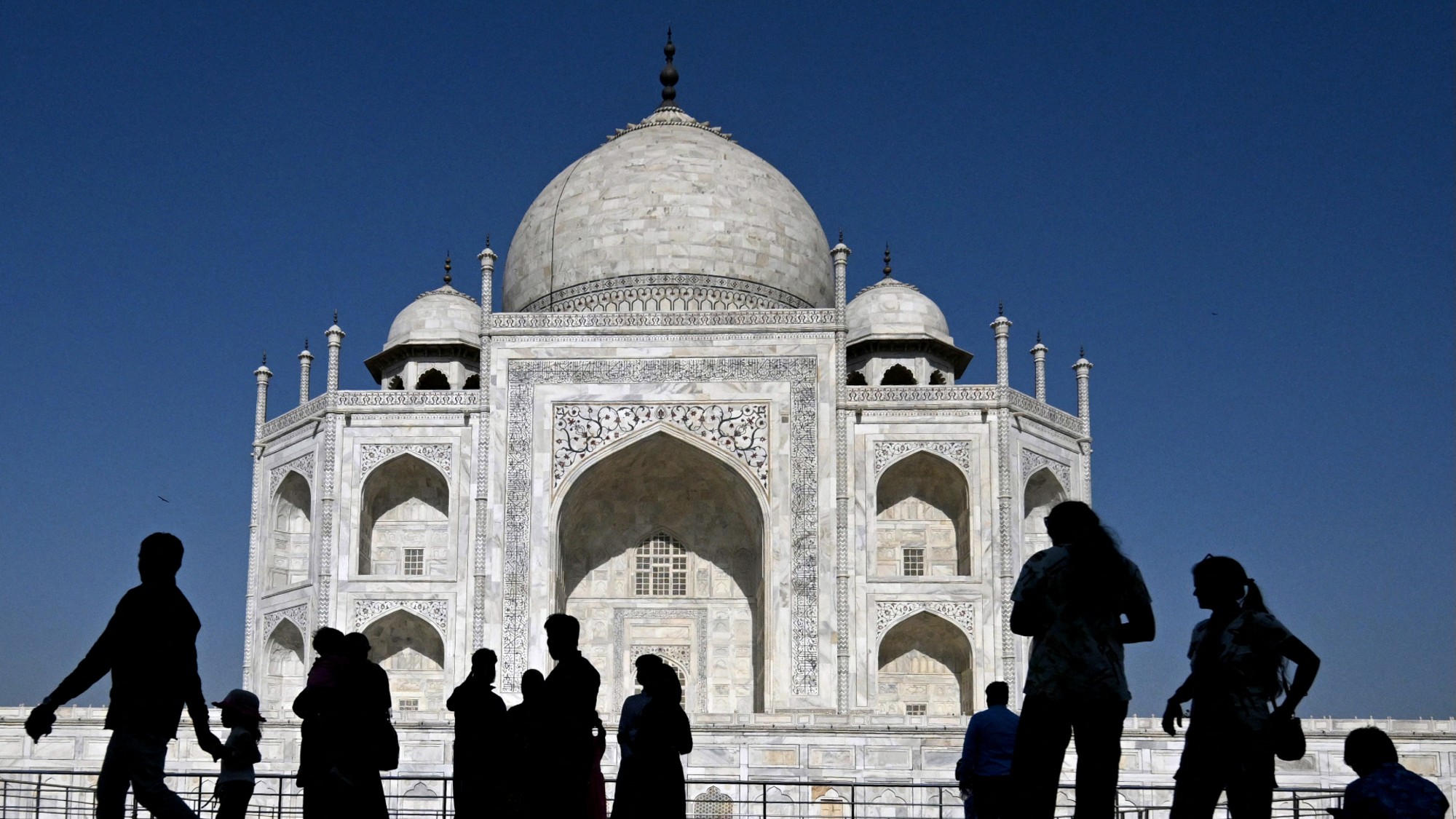 ‘These attacks rely on a political repurposing’
‘These attacks rely on a political repurposing’Instant Opinion Opinion, comment and editorials of the day
-
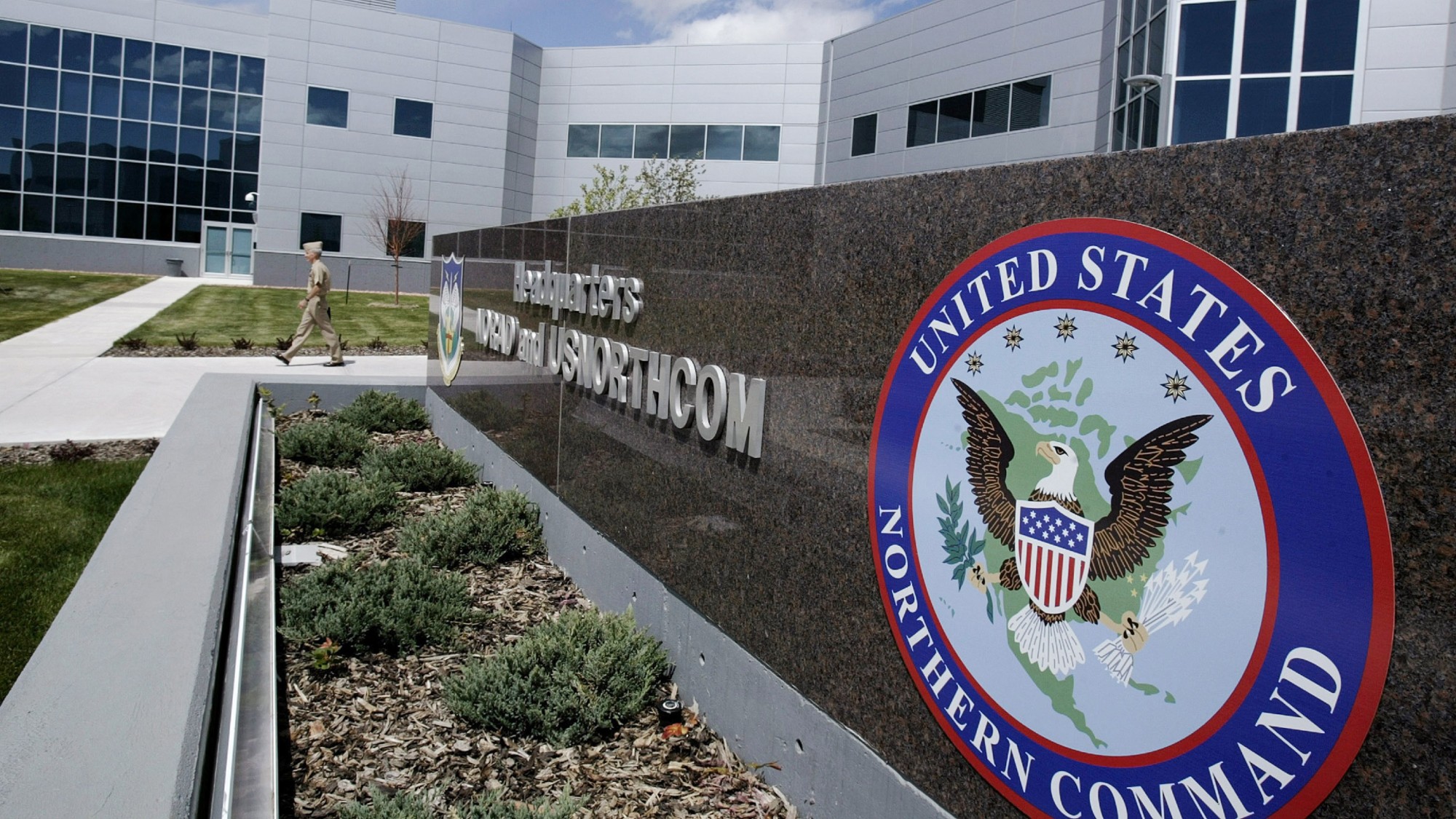 ‘Security is no longer a function only of missiles and fighter jets’
‘Security is no longer a function only of missiles and fighter jets’Instant Opinion Opinion, comment and editorials of the day
